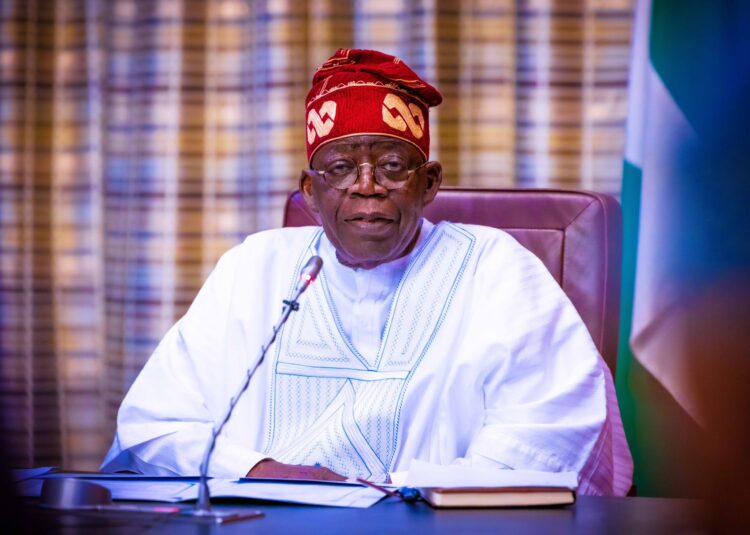President Tinubu’s witnesses will today begin their oral testimony under oath at the tribunal.
Newsonline Nigeria reports that President Bola Ahmed Tinubu’s witnesses will today begin their oral evidence in his defence at the Presidential Election Petition Court (PEPC).
This Nigeria News Platform understands that the court yesterday admitted in evidence 14 sets of documents tendered by his lawyer, Chief Wole Olanipekun (SAN).
The President opened his defence in the petition by Atiku Abubakar and the Peoples Democratic Party (PDP).
The documents include President Tinubu’s educational records from the Chicago State University, certified by the Associate General Counsel, Office of Legal Affairs, Chicago State University, Jamar C. Orr.
Also admitted was a February 3, 2003 letter from the Police to the United States Embassy in Nigeria, requesting information about any criminal records about Tinubu in the U.S.
The court also accepted the reply of the US Embassy, dated February 4, 2003, signed by the Legal Attache, Michael Bonner.
The Embassy stated in the response that there were no records of a criminal conviction, arrest or warrants on Tinubu.
Also tendered are certified true copies (CTCs) of documents on immigration and visa records of trips made to the U.S. by President Tinubu between 2011 and 2021.
A copy of the “Report of the Committee on the Location of the Federal Capital Territory (FCT)” and CTC of the originating summons of the suit marked: SC/CV/354/2023 filed on February 28, 2023, at the Supreme Court by the Attorneys General of Adamawa, Akwa Ibom, Bayelsa, Delta, and Sokoto states were also tendered.
Olanipekun also tendered a copy of Form EC8D (summary of results from local government areas collation at the state level) for Kano State; a copy of Form EC8D (A) (summary of results from states collation at the national level) and six copies of newspaper publications.
The newspapers are The Nation, Thisday, Nigerian Tribune, Sunday Sun, and The Punch.
The petitioners’ lawyer, Nella Rabana (SAN), raised an objection to the admissibility of all the documents and promised to adduce reasons in final written addresses, the court admitted them in evidence.
Olanipekun sought an adjournment till today.
Also yesterday, the Independent National Electoral Commission (INEC) opened and closed its defence in the petition by Peter Obi and the Labour Party (LP).
INEC’s lawyer, Abubakar Mahmoud (SAN), announced the closure of the first respondent’s case after the conclusion of the testimony of its sole witness, Dr. Lawrence Bayode, a Deputy Director in the Information and Communication Technology (ICT) Department of INEC.
Mahmoud also tendered some documents in evidence.
The witness, under cross-examination by Olanipekun, agreed that the foundation and authenticity of any election are rooted in the recordings of results in Forms EC8A and EC8E.
Bayode said that even when blurred documents are downloaded from INEC’s IREV portal, they cannot affect the physical results as recorded in Form EC8A which are not blurred.
He also said the images of Forms EC8A captured with BVAS and transmitted to IREV are not relevant for the collation of results.
The witness told the court that the glitch recorded during the last presidential election did not affect the collation of results.
Bayode recalled that the e-naira application launched by former President Muhammadu Buhari on October 18, 2021, has not had its application successfully activated due to some technical challenges.
Under cross-examination by the lawyer to the All Progressives Congress (APC), Lateef Fagbemi (SAN), Bayode said it was the physical Form EC8A that was used for the collation of results during the election.
He said the glitches recorded did not affect the collation of the results, adding that even when results downloaded from IREV are blurred, information can be obtained from the physical copies.














